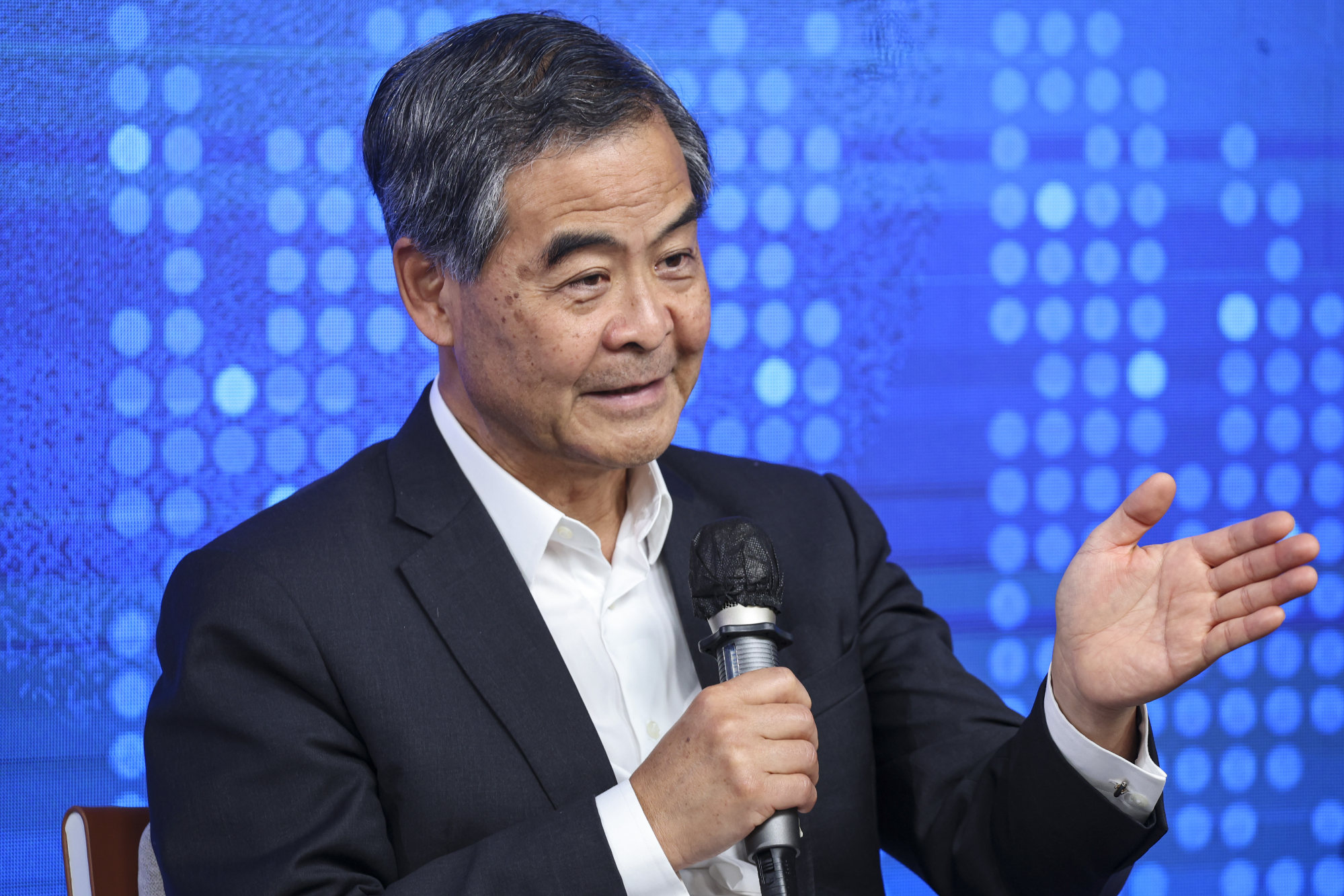
Deputy head of official Hong Kong think tank withdraws signature from 1,400-name petition urging lawmakers to reject bill overhauling Chinese University governing body
- In a statement late on Thursday, Chief Executive’s Policy Unit says deputy head Nicholas Kwan has voluntarily withdrawn his signature from petition
- Legislative Council committee will meet on Friday to discuss private members’ bill proposed by three lawmakers who sit on council
The deputy head of an official Hong Kong think tank has withdrawn his signature from a petition signed by more than 1,400 people including scholars and public figures that calls on lawmakers to reject a bill aimed at curbing the influence of staff and academics who sit on Chinese University’s governing council.
In a statement released late on Thursday, the Chief Executive’s Policy Unit said deputy head Nicholas Kwan Ka-ming had voluntarily withdrawn his signature from the petition.
“As an alumnus of the university, Mr Kwan’s concern and expression of personal opinions on the proposed amendments to university governance is understandable,” the statement said.
“However, there were concerns that the incident may reflect the government’s position. To dispel any unnecessary doubts, Mr Kwan has decided to withdraw his signature from the petition.”
A Legislative Council committee will meet on Friday to discuss the private members’ bill proposed by three lawmakers who sit on the council.
The group pushing for the proposal to be scrapped took out full-page adverts in three newspapers on Thursday listing the names of alumni, including Kwan, who had signed the petition. Professor Leonard Cheng Kwok-hon, president of Lingnan University, was also among the signatories.
Asked about Kwan signing the petition, the think tank earlier said the matter was related to his personal affairs and it would not comment.
One of the most prominent supporters of the bill is former city leader Leung Chun-ying, who singled out the university’s vice-chancellor and president Rocky Tuan Sung-chi for criticism.
“Institutional autonomy and academic freedom have been abused after the 2019 black violence,” Leung wrote on Facebook, referring to the anti-government protests that swept the city that year and spilled onto campuses. “This exactly explains the need to reform the Chinese University council and remove Rocky Tuan.”

Tuan had been criticised by the pro-establishment camp for being sympathetic to student protesters during the social unrest.
At the centre of the controversy is the Chinese University of Hong Kong (Amendment) Bill 2023, initiated by three lawmakers appointed to sit on its council – Tommy Cheung Yu-yan, Bill Tang Ka-piu and Edward Lau Kwok-fan.
They have proposed cutting the council’s membership from 55 to 34, while increasing the proportion of external representatives so they would dominate the governing body. The bill also seeks to raise the council’s voting threshold for deciding the university’s vice-chancellor, to three-quarters instead of a simple majority.
The former chief executive also posted a letter by Charles Leung Ying-wai, a university council member and chairman of the board of the university’s New Asia College, which was sent to the bills committee and stated that he hoped the bill could be passed as soon as possible.

“Many of the members in the council are university staff members whose promotion is determined by the vice-chancellor,” Charles Leung said. “The council is a rubber stamp body that endorses the vice-chancellor. In effect no one is monitoring the vice-chancellor and the management.”
Heung Shu-fai, one of the organisers of the petition, said the alumni group had submitted about 1,400 signatures to the committee, and most of them were graduates of the university.
“We believe that you are imposing something on [the university] that is not in the best interest of the institute, and we express our disapproval,” Heung said.
Alumni believed that reforms should be based on a plan for reforming the council drawn up in 2016, he said. That proposal suggested downsizing the body to 29 members, with internal members taking up 11 seats.
The bill backed by the three lawmakers ignored agreements contained in the previous plan and pushed for changes that were never put forward to council members for discussion, Heung added.
Fellow council member Kelvin Yeung Yu-ming, one of the organisers of the online petition, suggested cutting the number of lawmaker members in the council from three to two, while setting the voting threshold at two-thirds for deciding the vice-chancellor, among others.
Other alumni signing the petition include: Stanley Hui Hon-chung, former Hong Kong Airport Authority chief executive officer; Louis Ng Chi-wa, director of the Hong Kong Palace Museum; and government pandemic adviser Professor David Hui Shu-cheong.
Former assistant director of Hong Kong Observatory Leung Wing-mo, ex-undersecretary for commerce and economic development Godfrey Leung King-kwok and fellow council member Lina Yan Hau-yee were also among the signatories.


